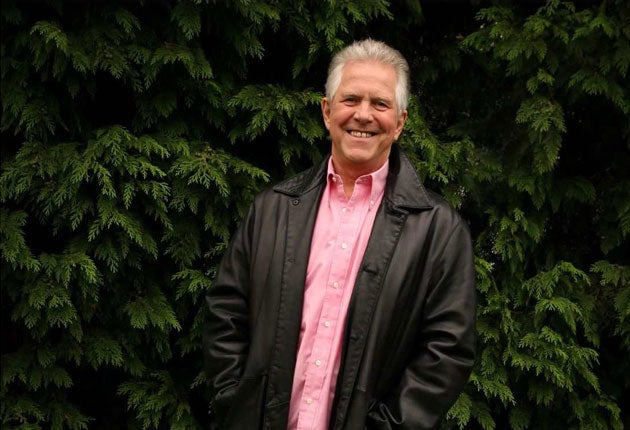Dave Dee, gap-toothed face of the Sixties, dies aged 66
Along with Dozy, Beaky, Mick and Tich, he formed a band that regularly outsold the Beatles. John Walsh pays tribute to a humble star

Dave Dee, the charismatic leader of Dave Dee, Dozy, Beaky, Mick and Tich, one of the most successful pop groups of the late 1960s, died of cancer yesterday at the age of 66. With their stridently groovy clothes, their on-stage horseplay and bizarrely eclectic musical stylings, they were never cool or taken seriously by the rock establishment. Yet between 1965 and 1969, they notched up a string of eight Top 10 hits, and spent more weeks in the singles charts than the Beatles.
Their most memorable song was a No 1 from 1968, "The Legend Of Xanadu" – a mini-opera of duels and doomed romance in some vaguely Hispanic "black, barren land," driven by Spanish guitars and punctuated by whipcracks of eye-watering sadism. In the year, that brought the British music scene "Hey Jude," "Jumping Jack Flash," "Sunshine Of Your Love" and "Magic Bus", it stuck out as original but slightly idiotic, and was a huge international hit.
Dave Dee's cheery, gap-toothed grin became a regular sight on Top Of The Pops. He looked like a man delighted (and frankly amazed) to have a song in the charts, a man greatly enjoying stardom while not expecting it to last. No recording artist in history ever seemed less agonised.
His path to success was rocky. He started life as Dave Harman, the son of a Salisbury builder who threatened to shoot his son if he went into the trade, Instead he became a policeman. As an 18-year-old cadet, he made a startling discovery one night in 1960. Called to the scene of a car crash in Chippenham, he discovered that the car's occupants were the American rock 'n' rollers Gene Vincent and Eddie Cochran. The latter was badly hurt and later died. Dave took his Gretsch guitar home for safe keeping and returned it to Cochran's family.
Harman had joined a skiffle band at 13 and got his break with Ronnie Blond and the Beatnicks, where he met Trevor "Dozy" Ward-Davies and Ian "Tich" Arney. When the frontman Blond, a keyboard virtuoso, failed to appear one night, Harman stepped in. Renamed Dave Dee and the Bostons, the band went to Germany and played in the new rock clubs of Hamburg, Frankfurt and Cologne, where the Beatles had recently made a mark.
In England, they tried every record company without success. Then one night at the Swindon Locarno, they met the management and songwriting team of Ken Howard and Alan Blaikley, who looked at the hyperactive Wiltshire quintet with their on-stage high jinks of choreographed, swinging guitars and innuendo-strewn patter, and saw something that could be developed. They changed their name to Dave Dee, Dozy, Beaky, Mick and Tich (which guaranteed name-checks by amused Radio 1 DJs) and wrote songs for them: "You Make It Move", "Bend It" (many of their titles sounded faintly rude), "Hold Tight" (based on a terrace football chant), "Zabadak" (which employed jungle drums and bugaboo lyrics that would be quite un-PC today) and "Last Night In Soho", with its chorus of revving motorbikes.
Speaking to The Independent last summer, as the band embarked on a European tour with a greatest hits CD, Dee recalled the mayhem at concerts when fans regularly tore off his clothing. He had shirts made with 10 pairs of sleeves, "so they'd come away when I was grabbed". He was proud of having shared a Croydon stage with the Rolling Stones, of having opened for the Beatles at a New Musical Express concert in 1966, and – most of all – for having the Jimi Hendrix Experience as their warm-up act when touring Germany.
The band broke up in 1972. Dee went solo, without success, then became an artist and repertoire man at Atlantic Records, where he gave the world AC/DC and Boney M. Later, he became a magistrate in Brent, north-west London. He re-formed the band in the 1990s and toured right to the end – surely the only justice of the peace to be found, in his mid-60s, cracking a bullwhip on stage and singing of doomed love in the Mexican desert.
Join our commenting forum
Join thought-provoking conversations, follow other Independent readers and see their replies
Comments
Bookmark popover
Removed from bookmarks